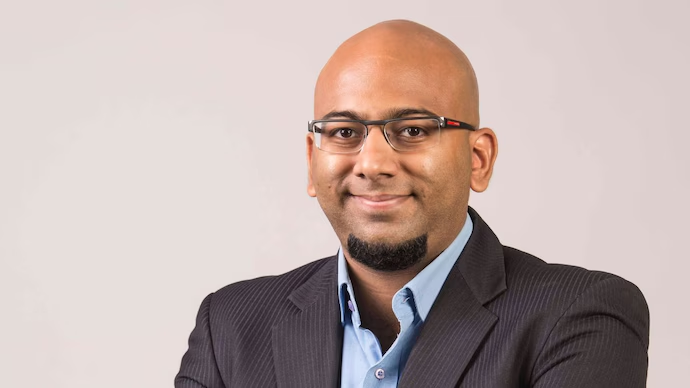Bombay Shaving Company CEO Shantanu Deshpande sparks debate on India’s work culture
Bombay Shaving Company CEO Shantanu Deshpande has recently sparked a discussion about India’s work culture through a thought-provoking post on LinkedIn. In his detailed comment, Deshpande has criticised the current state of employment in India, claiming that most people dislike their jobs and would quit if their financial needs were not taken care of. His post has since sparked a debate on attitudes towards work and the underlying issues of financial insecurity and wealth inequality.

Discontent across sectors
Deshpande began his post with a very pointed remark: “Most people don’t like their jobs.” He elaborated that if financial security was no longer an issue, most employees would quit their jobs without a second thought. According to Deshpande, 99% of employees would choose not to come to work the next day if they were guaranteed financial stability.
Deshpande argues that this discontent is not limited to any one industry. Whether it is blue-collar workers, government employees, gig workers or people working in startups, the underlying sentiment is the same. He emphasises that for many, work is simply a necessity to meet financial obligations. Recalling his experience at Bombay Shaving Company, Deshpande jokes that even in “fun and employee-friendly startups”, the work culture reflects a deep dissatisfaction with everyday life.
The “dangling carrot” of work
Deshpande compares India’s current work culture to a “dangling carrot” system – where employees are lured away from their families and homes by the promise of a salary. He questions why this system has persisted for over 250 years, given that this model of work is seen as essential for nation-building, even though it perpetuates inequalities.
According to Deshpande, this long-standing work culture assumes that employees will continue to work because they have no other option. The rewards of work are often seen as the only way to survive and provide for families, creating a cycle of dissatisfaction and dependency. As a result, employees often feel trapped in jobs they don’t like, simply because they need the financial security it provides.
The wealth inequality puzzle

The CEO also draws attention to a pressing issue in India: wealth inequality. He highlights that just 2,000 families in India control 18% of the country’s wealth, a situation that exacerbates economic inequalities. While these families pay a disproportionately small share in taxes (less than 1.8%), they continue to benefit from this concentration of wealth.
Deshpande admits that his own position as an entrepreneur, building equity in his own company, puts him in a similar position. He reflects on how individuals, especially those in privileged positions, often perpetuate the “work hard and rise” narrative because it aligns with their own self-interest. While he acknowledges that 75% of billionaires are self-made, he also points out that the group of such self-made individuals is incredibly small, leaving the vast majority of the population trapped in a system that does not provide them with the opportunities to succeed.
A call for compassion and change
Deshpande concludes his post with a heartfelt plea for those who are privileged to be more compassionate and generous to others. He reminds his audience that life is incredibly difficult for most people, and very few will ever experience a change in their circumstances. Many people silently carry the weight of invisible burdens, yet keep smiling despite the inevitability of their situation.
As a person of privilege, Deshpande urges others to use their resources to help lift up as many people as possible. They call on those who are able to create opportunities for others to be kind and push them upward, reducing the pressures and inequalities that hinder progress.
The big picture
Deshpande’s comments align with ongoing conversations around work culture, economic inequality and the need for systemic change. The frustrations expressed by CEOs reflect broader concerns about the lack of satisfaction in many workplaces and structural barriers that prevent people from pursuing their passions or a better work-life balance.
Their views point to a deeper issue: work is often viewed not as an opportunity for growth or personal satisfaction but as a means to survive. This dissatisfaction is felt across all levels of the workforce, from entry-level employees to top executives. As Deshpande accurately points out, many workers would prefer to quit their jobs if they had the financial security to do so, suggesting that genuine satisfaction and job fulfillment are often sidelined in favour of basic financial survival.
Conclusion
India Shantanu Deshpande’s candid critique of the work culture of the US challenges us to rethink our attitudes towards work, money and other such aspects.
Social responsibility. His post raises essential questions about the importance of work and the structures that keep people in unsatisfying roles just to make a living. Urging privileged individuals to be more compassionate and supportive, Deshpande calls for a shift towards a more equitable and fulfilling work environment for all. Whether his message will lead to real change or simply provoke further debate remains to be seen, but his words have undoubtedly struck a chord with many who feel trapped in a system that offers little in the way of personal satisfaction or advancement.
Take a look at the post here:
